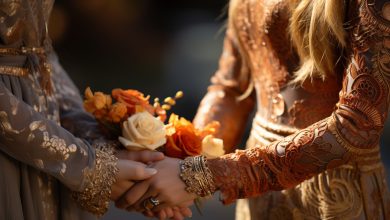
Arranged Marriages Vs. Love Marriages: Comparing Different Approaches to Relationships
Imagine standing at a crossroads, torn between tradition and passion. Arranged marriages and love marriages offer contrasting paths to relationship bliss.
In this thought-provoking article, we delve into the depths of these different approaches, exploring cultural and social factors, the role of personal choice, emotional connection and compatibility, long-term relationship success, and the impact on individual freedom.
Get ready to embark on a journey of self-discovery as we compare and contrast these two distinct pathways to love.
Cultural and Social Factors

When considering arranged marriages vs. love marriages, it’s important to take into account the influence of cultural and social factors on the decision-making process.
Cultural and social factors play a significant role in shaping the expectations and preferences regarding marriage in different societies. In cultures where arranged marriages are prevalent, such as in many parts of Asia and Africa, the decision to marry is often influenced by factors such as family honor, social status, and economic considerations.
In these societies, the emphasis is on the compatibility of families rather than solely on the compatibility of individuals. On the other hand, in societies where love marriages are more common, such as in Western countries, individual autonomy and personal choice are given greater importance in the decision-making process. Here, the focus is on finding emotional and romantic compatibility with a partner.
These cultural and social factors not only shape the initial decision to marry but also influence the expectations and dynamics within the relationship. Understanding and appreciating these differences is crucial in order to better comprehend the complexities and nuances of arranged marriages vs. love marriages.
Role of Personal Choice

Considering the role of personal choice in arranged marriages vs. love marriages, you must acknowledge the impact it has on the decision-making process and overall dynamics of the relationship.
Personal choice plays a significant role in love marriages, as individuals have the freedom to choose their partner based on mutual attraction, compatibility, and shared values. This allows for a strong foundation of love and emotional connection to develop, which can contribute to a more fulfilling and satisfying relationship.
On the other hand, personal choice is often limited in arranged marriages, as the decision is primarily made by the families involved. While this approach may seem restrictive, it’s important to note that personal choice can still exist within the boundaries set by the families. Individuals in arranged marriages can still express their preferences and provide input in the decision-making process. However, the ultimate decision rests with the families, who consider factors such as social status, financial stability, and cultural compatibility.
The impact of personal choice on the dynamics of the relationship is also evident in both types of marriages. In love marriages, the shared choice creates a sense of equality and partnership between the couple. They’ve a greater sense of autonomy and control over their own lives, which can lead to a more balanced power dynamic within the relationship.
On the other hand, in arranged marriages, the limited personal choice can lead to a power imbalance, where one partner may feel obligated to comply with the wishes of the family. This can result in a hierarchical relationship, where decision-making authority lies more with the family than with the individuals involved. However, it’s important to note that every relationship is unique, and the impact of personal choice on the dynamics can vary.
Emotional Connection and Compatibility

In assessing the emotional connection and compatibility, it is important to delve into how personal choice influences the development and sustainability of both arranged marriages and love marriages. While love marriages are based on the foundation of personal choice and emotional connection, arranged marriages often prioritize compatibility and long-term stability.
| Arranged Marriages | Love Marriages |
|---|---|
| Families play a significant role in selecting a partner based on shared values, culture, and social status. | Individuals have the freedom to choose their partner based on personal attraction and compatibility. |
| Emotional connection may develop over time as the couple gets to know each other. | Emotional connection often forms the basis for starting and sustaining the relationship. |
| Compatibility is often emphasized, focusing on shared goals, values, and interests. | Compatibility is typically based on personal attraction and shared interests. |
| The couple may need to work on building a strong emotional connection and compatibility. | The couple enters the relationship already having an emotional connection and compatibility. |
| Success relies on mutual effort, compromise, and understanding to cultivate emotional connection and compatibility. | Success relies on the strength of the initial emotional connection and compatibility. |
Both arranged marriages and love marriages have the potential for emotional connection and compatibility, albeit through different pathways. The importance of personal choice in love marriages allows for a stronger initial emotional bond, while arranged marriages rely on compatibility and shared values to nurture emotional connection over time. The next section will explore the impact of emotional connection and compatibility on long-term relationship success.
Long-term Relationship Success

To ensure long-term relationship success, you must prioritize communication and mutual understanding in both arranged marriages and love marriages. These factors play a crucial role in maintaining a healthy and fulfilling relationship, regardless of the marriage type.
Here are some key factors to consider:
– Open and Honest Communication: Regular and open communication allows both partners to express their thoughts, feelings, and needs. It fosters understanding and helps resolve conflicts effectively.
– Shared Values and Goals: Having shared values and goals creates a strong foundation for a long-lasting relationship. It ensures that both partners are working towards a common future and are aligned in their aspirations.
– Commitment and Trust: Building trust and maintaining commitment is essential in any relationship. Trust enables partners to feel secure and supported, while commitment ensures that both individuals are dedicated to making the relationship work.
– Flexibility and Adaptability: Successful relationships require flexibility and adaptability to navigate through life’s challenges and changes. Being willing to compromise and adjust to new circumstances strengthens the bond between partners.
While the dynamics and initial circumstances may differ between arranged marriages and love marriages, the importance of these factors remains consistent. By prioritizing communication, understanding, shared values, commitment, trust, and flexibility, couples can increase their chances of long-term relationship success, regardless of how their relationship began.
Impact on Individual Freedom

Maintaining a balance between individual freedom and the expectations of a relationship is crucial in both arranged marriages and love marriages. While arranged marriages are often associated with limited individual freedom due to the involvement of families in the decision-making process, love marriages are perceived as allowing individuals to exercise their freedom to choose their partners. However, it is important to recognize that both types of marriages have their own impact on individual freedom.
| Aspect | Arranged Marriages | Love Marriages |
| Partner Selection | Often determined by families, limited individual choice | Individuals have the freedom to choose their partners |
| Compatibility | May have limited knowledge about each other’s preferences and expectations | Based on shared interests and compatibility, leading to a higher level of individual freedom |
| Decision-making | Involvement of families may influence individual decision-making | Individuals have the freedom to make decisions together, without external influence |
In arranged marriages, the limited individual freedom in partner selection can result in individuals feeling obligated to fulfill family expectations. On the other hand, love marriages provide individuals with the freedom to choose their partners based on their own preferences and compatibility. However, it is important to note that love marriages also come with their own set of expectations and responsibilities that may impact individual freedom.
Conclusion
In conclusion, the comparison between arranged marriages and love marriages reveals the complex interplay of cultural factors, personal choice, emotional connection, and long-term relationship success.
Like two contrasting landscapes, arranged marriages are akin to a carefully cultivated garden, where external forces shape the union.
On the other hand, love marriages resemble a wild meadow, where individual freedom and emotional compatibility bloom.
Ultimately, the choice between these approaches rests in finding harmony between societal expectations and personal desires.






